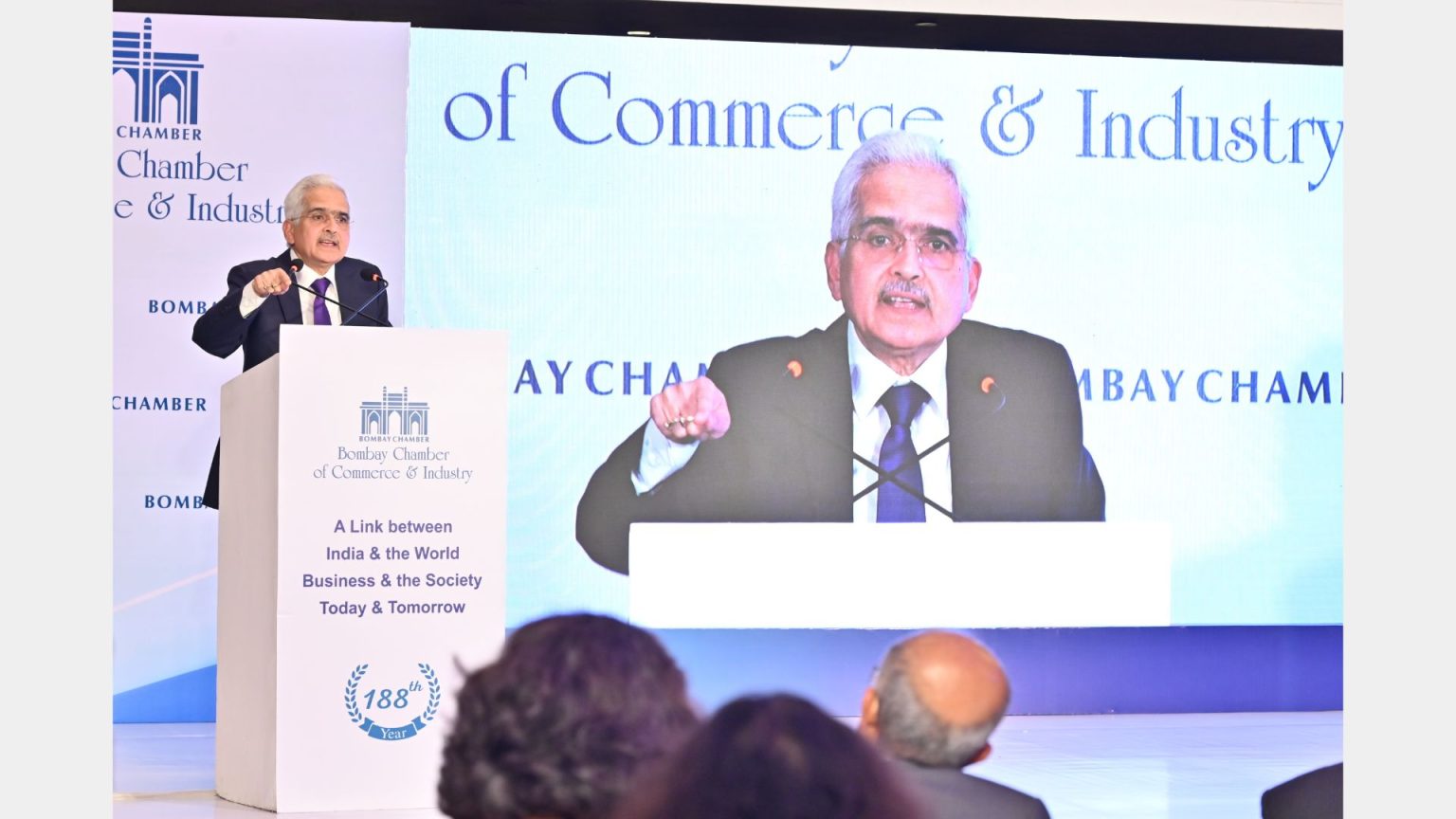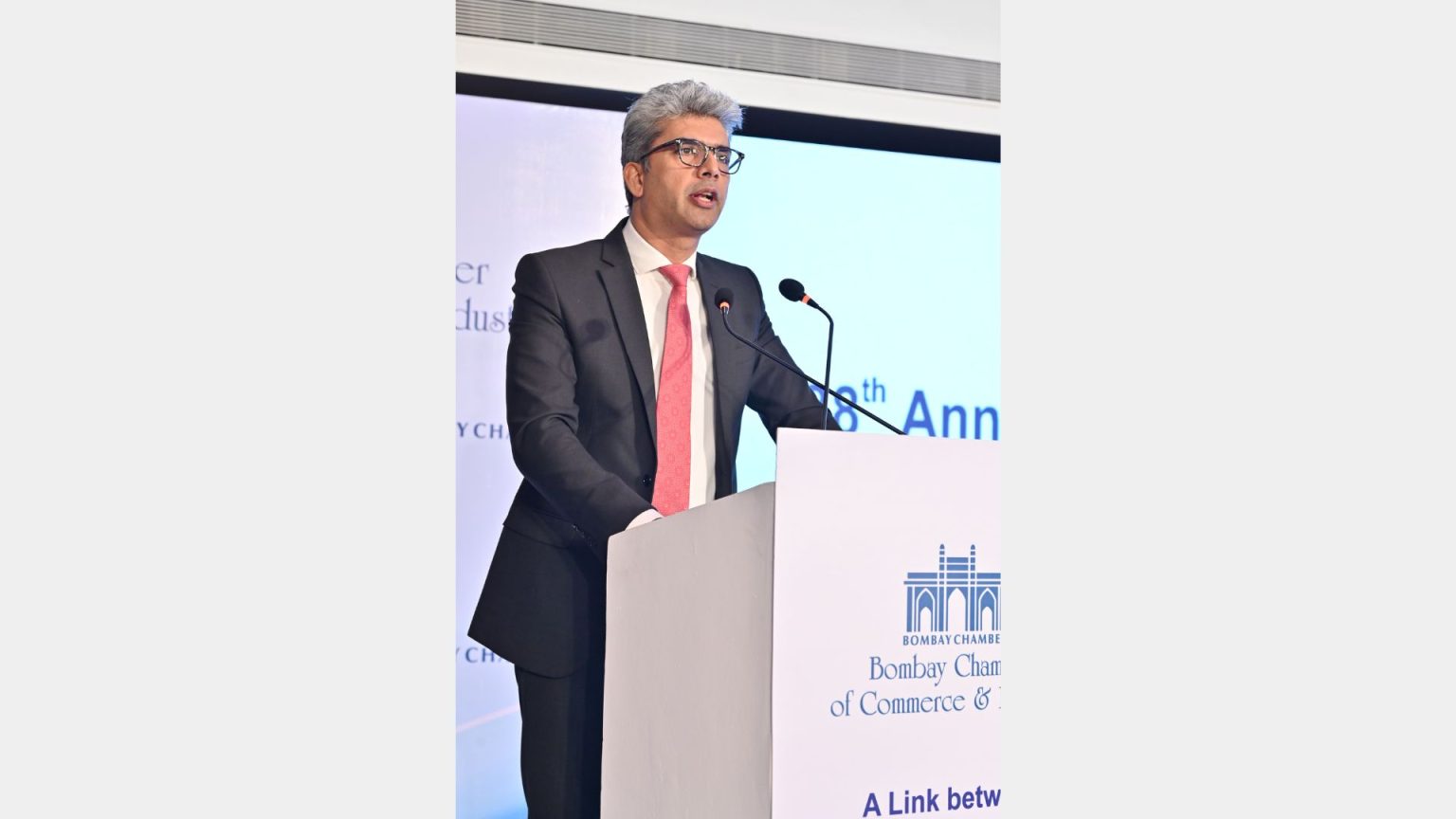India is at the threshold of a major structural shift in its growth trajectory: Shaktikanta Das


Ritesh Tiwari, outgoing President, Bombay Chamber of Commerce & Industry
FinTech BizNews Service
Mumbai, June 26, 2024: India is at the threshold of a major structural shift in its growth trajectory, moving towards 8 per cent GDP growth in a sustained manner, said RBI Governor Shri Shaktikanta Das. He was speaking at the 188th AGM of the Bombay Chamber of Commerce & Industry. Giving figures, Shri Das said that the average growth India recorded over the last three years is 8.3%, with the current year projected at 7.2% growth. “The Indian economy in the last FY contributed to 18.5 percent of global growth – and this is no mean achievement,” he added.
Listing the main causes of this growth in the last three years, Shri Das pointed out that structural reforms such as the Goods and Services Tax (GST) have contributed vastly to this growth. “The GST has avoided tax on tax and has the advantage of avoiding multiplicity of taxes,” he said. He also pointed out that GST has stabilised much faster than other economies – this is reflected in the fact that the tax collections in GST have touched 1.7 lakh crores per month. Further, the introduction of the Insolvency and Bankruptcy Code and Flexible Inflation Targeting Framework by way of amendment to the RBI Act in 2016 helped this growth.
Shri Das further said that India’s growth story has been and will be multi-sectoral. “A country with a 140-crore population, which is the fifth largest economy, aspiring to become the third largest and an advanced economy by 2047, cannot depend on a single sector.” He mentioned how growth is well sustained with the outlook for the current year at 7.2 %, while with inflation at 4.7 per cent with downside risks, the central bank aims to bring it down to 4%. However, he cautioned that with inflation within striking distance of 5%, in the event of any weather vagary, there is a need to be vigilant.
He also spoke about the Central Bank Digital Currency (CBDC) and said that it is the future of money. He added that the digital currency will not be in competition with UPI and, instead, both will co-exist and be interoperable.
Concluding his Address, Shri Das said, “As a central bank, we have issued our agenda for RBI@100. We are at the forefront of adoption of technology and of innovation and are fully committed to all its mandates and responsibilities assigned to it and in supporting India’s growth story.”
Delivering his Presidential address, Ritesh Tiwari, outgoing President, Bombay Chamber of Commerce & Industry and CFO, Hindustan Unilever Ltd. and Unilever South Asia, outlined the Chamber’s various path-breaking initiatives and said, “Bombay Chamber’s continued programmatic educative interventions, like the many we did this year, are paramount to accelerate the pace of digitisation across the country that is needed to capitalise on this potential thus driving pan India innovation.”
Tiwari also highlighted the high quality of advocacy papers submitted by the Bombay Chamber, and their impactful recommendations to the SEBI expert committee for improving the ease of doing business. He noted that most of these recommendations were accepted and are now open for public consultation, emphasising that such advocacy by the Chamber has a significant and tangible impact.
In her mission statement, Pinky Mehta, President Designate, Bombay Chamber of Commerce & Industry and CFO, Aditya Birla Capital Ltd., said, “In keeping with our government’s vision of making India a Developed Nation, I wish to call my mission statement ‘Collaborative Development towards a Viksit Bharat‘. The same four critical aspects of the mission will continue with a focus on (1) Embracing Digitalisation (2) Bringing ESG to the heart of business (3) Enhancing Ease of Doing Business and (4) Fostering Diversity, Equity, and Inclusion.”
At the event, the Chamber also unveiled the findings of its inaugural Sustainability Practices Survey. Anirban Ghosh, Chairman of the Sustainability Committee at Bombay Chamber and Head of the Centre for Sustainability at Mahindra University, presented the key highlights.
Aligned with Prime Minister Narendra Modi’s vision of Viksit Bharat@2047, the evening also saw a Panel Discussion on the topic, moderated by Dr. Sachchidanand Shukla, Chairman, EPRD Committee, Bombay Chamber and Group Chief Economist, Larsen & Toubro Ltd. The panel featured Nilesh Shah, Past President, Bombay Chamber and Group President & MD, Kotak Mahindra AMC, Navneet Munot, Director, Bombay Chamber and MD & CEO, HDFC Asset Management Company, Neelkanth Mishra, Chief Economist, Axis Bank and MD & Head of Global Research, Axis Capital and Santanu Sengupta, Chief India Economist, Goldman Sachs. The speakers discussed steps that need to be taken for India to reach its aim of a Viksit Bharat by 2047. They noted that India is advanced in digital infrastructure and progressing in physical infrastructure, with potential stabilisation of social infrastructure in the coming years. There is a need to ensure growth shifts from poverty to middle income. Reforms are also needed in areas such as GST, direct tax and urban infrastructure, where the biggest drawback for us viz a viz developed countries is capital stock.
Rajiv Anand, Sr. Vice President Designate, Bombay Chamber and Deputy Managing Director, Axis Bank, delivered the Vote of Thanks.